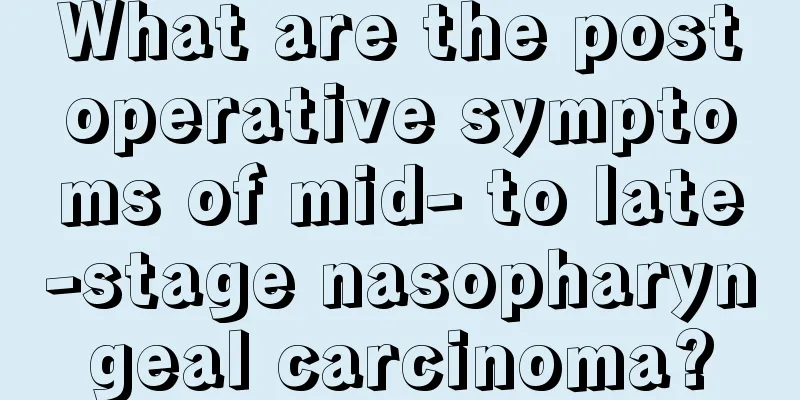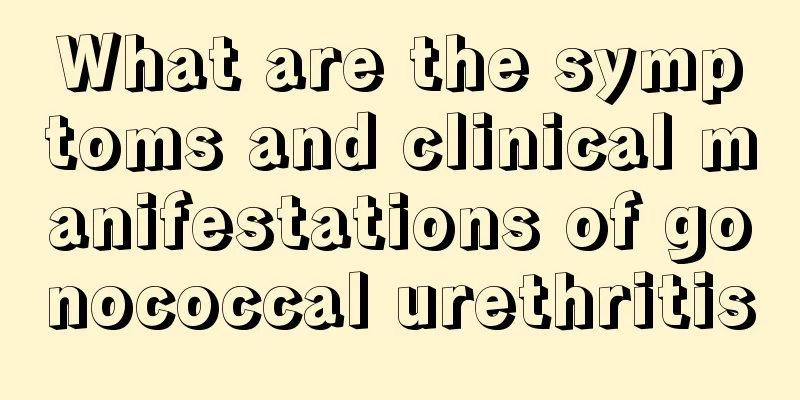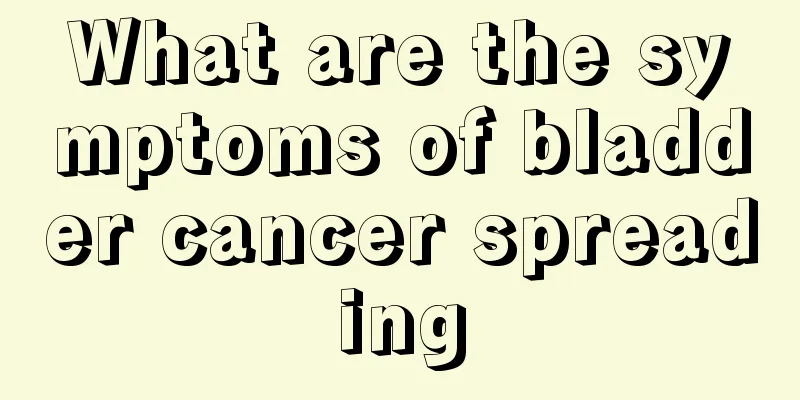What are the postoperative symptoms of mid- to late-stage nasopharyngeal carcinoma?

|
What are the symptoms after surgery for mid- to late-stage nasopharyngeal carcinoma? Nasopharyngeal carcinoma is one of the common malignant tumors in my country. Although it occurs in many countries and regions in the world, the incidence rate in most parts of the world is relatively low, generally below 1/100,000. Common clinical manifestations of nasopharyngeal carcinoma include: nosebleeds and epistaxis, nasal congestion, tinnitus and hearing loss, headache, cervical lymphadenopathy, facial numbness, diplopia, etc. The diagnosis can be based on clinical symptoms and signs, laboratory tests, imaging diagnosis and nasopharyngeal endoscopy, and finally a definitive diagnosis based on pathological examination. The postoperative symptoms of nasopharyngeal carcinoma in the middle and late stages include the following six manifestations: 1. Tinnitus and hearing loss are caused by tumor infiltration and compression of the Eustachian tube, which creates negative pressure in the tympanic cavity. 2. Headache is the most common symptom of nasopharyngeal cancer, which is often manifested as unilateral persistent pain, mostly located on the top of the face. 3. Eye symptoms: When nasopharyngeal carcinoma invades the eye socket or nerves related to the eyeball, visual impairment, exophthalmos, diplopia, and restricted eye movement may occur. 4. Diplopia: Due to the invasion of the abducens nerve by the tumor, double vision is often seen when looking outward. When the trochlear nerve is invaded, it often causes inward strabismus and diplopia. It is often damaged at the same time as the trigeminal nerve. 5. Tongue atrophy and tongue deviation: Direct invasion of nasopharyngeal carcinoma or lymph node metastasis to the posterior styloid process or hypoglossal nerve canal causes the hypoglossal nerve to be invaded, causing the tongue to deviate to the affected side, accompanied by tongue muscle atrophy on the affected side. If the hypoglossal nerves on both sides are damaged, it will cause difficulty in tongue extension. The incidence of tongue deviation is second only to facial anesthesia. 6. Facial numbness: refers to numbness of the facial skin. Clinical examination shows decreased or absent pain and tactile sensation. Tumor invasion of the cavernous sinus often causes damage to the first or second branch of the trigeminal nerve, resulting in numbness or paresthesia of the skin in the front of the auricle, temporal region, cheek, lower lip and chin. |
<<: Does advanced lung cancer still require surgery?
>>: Side effects of chemotherapy for small cell lung cancer
Recommend
Can papillary thyroid carcinoma heal itself? How to treat papillary thyroid carcinoma
Papillary thyroid cancer cannot heal on its own. ...
Is blood pressure 129 normal?
Everyone should be clearly aware of the serious h...
What to do if you get a blister on your toe
Blisters on the toes are caused by water accumula...
How to distinguish the authenticity of black beans
It is found that many people have eaten black bea...
Are anti-blue light glasses useful
Nowadays, there are many things around us that ha...
Is it true that black tea can remove formaldehyde?
Tea is a daily necessity for many people. Without...
Spots appear on my face when I'm exposed to the sun
Many people have spots on their faces. The presen...
What are the advantages and disadvantages of washing your face with white vinegar
Many people like to use white vinegar to wash the...
Is fibroid harmful to the body?
With the continuous development of society and th...
Patients need to know some ways to treat prostate cancer
In recent years, the incidence of prostate cancer...
What causes sweat on the forehead?
Many people have had similar experiences of sweat...
Do not stop taking medication casually when treating osteosarcoma
Medicines are three-part poisons, which is a comm...
What are the serological examination indicators for liver cancer?
Serological examination is a routine examination ...
When is the best time to brush your teeth in the morning?
Every day when I go out, I dare not talk to other...
What to do if your skin gets sunburned during military training
Military training is something that every student...









